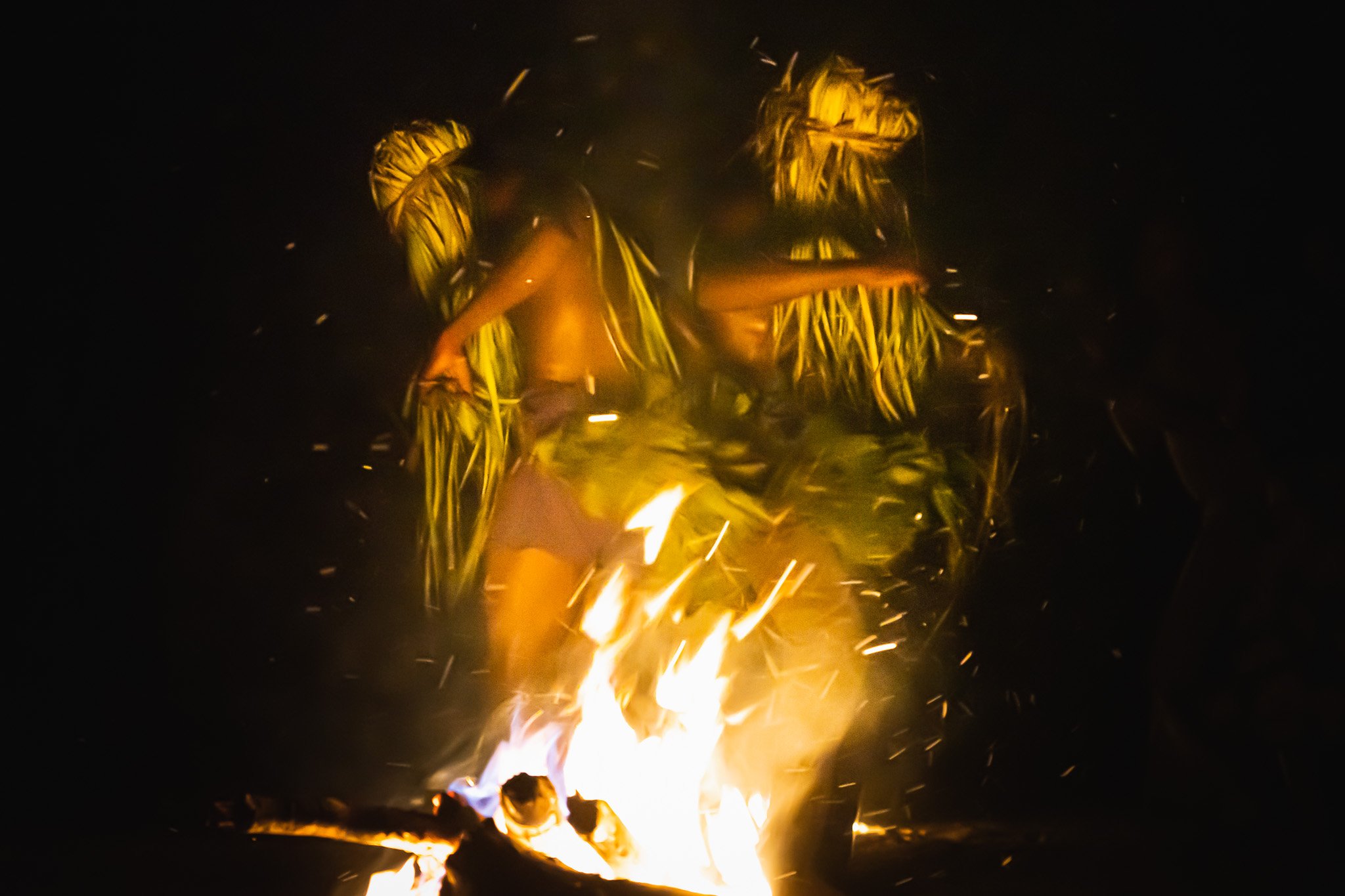Forest Spirits: The Diloko
I doze off while looking at the flames. BaYaka women sing and circle around and between two large bonfires. Cutting through the night, a cry from the forest awakens me: "IH-OH-OH... IH-EH-EH". Four anthropomorphic figures gradually emerge into the light. The dancing and singing of the women increases and they start to dance with these creatures. The Diloko is not like other spirits, tells me a BaYaka man, he is a friend of the women. The Diloko is a "Massana" (game, ceremony) practiced by the BaYaka hunter-gatherer people in the forests of the Republic of the Congo. During the night, women will attract the spirit to dance with them, with the intent to lift the sorrow after someone's funeral. As on other Massana, this ceremony is mainly for the women, and the men sit around playing instruments, drinking, and smoking, while children develop their own games on the sidelines. Wrapped in a green blanket, the "Mother" Diloko calls their sons "IH-OH-OH... IH-EH-EH", guiding them to the fire and coordinating their dances. Dancing and singing, the Diloko ceremony will not stop until the first rays of the sun emerge from the canopy, the fire is extinguished and sadness is washed away.
Consent: Every photograph presented here was taken and shared with the fully informed consent of the people presented here (or their guardians in the case of under-aged children).One of the Diloko dances around the fire.
BaYaka children stay at the periphery of the Massana, playing their own games, while the adults conduct the ceremony.
Despite being a Massana conducted by the men, their involvement is somewhat reduced. They will mainly socialize amongst themselves while women dance.
The BaYaka are extraordinary musicians and incredible dancers.
During the Diloko Massana, women will endlessly circle the fire, whilst singing and dancing.
During the ceremony, the Diloko (mokondji/spirit) will be attacked by women's songs to the fire. The men's job is to retrieve the spirit from the forest. The Diloko dance will intensify depending on the amount of fire produced.
Three Diloko "sons" perform between bonfires whilst women sing and encircle them.
The Diloko "mother" is an important character in the ceremony. It is this spirit that guides and conducts its "sons" letting them know what they should do.
The bonfire is a centerpiece in the Diloko Massana. Everything happens around it. Both BaYaka and the spirits will take short breaks when the fire is weaker, and intensify their dances when its light is stronger.
Teenagers resting during a ceremony that will extend until the break of dawn.
Women will "tease" the spirits inviting them to dance.
Palm wine is collected prior the ceremony and shared between the participants throught the night.
Rafi leaves cover the identity of the spirits
Children intermittently will approach the fire during "breaks", to warm themselves on the tropical nights.
Dogs are kept by the BaYaka as hunting partners.
Carrying babies do not prevent BaYaka women to take part in the dances. In fact, most of women's activities will be conducted while carrying their babies.
Despite being preceded by a funeral, the Diloko is a joyful and energetic ceremony that will lift the mood left by the passing of a community member.
Diloko "mother" guiding its "sons".
A small beacon of light in the immense darkness of the rainforest. There, is where the Diloko Massana is conducted.
Several generations of women share the same songs and dances.
Some men will play musical instruments through the night. The simplicity of these instruments is misleading. BaYaka can produce the most complex and beautiful rhythms out of it.
Men socializing at the periphery of the Massana.































